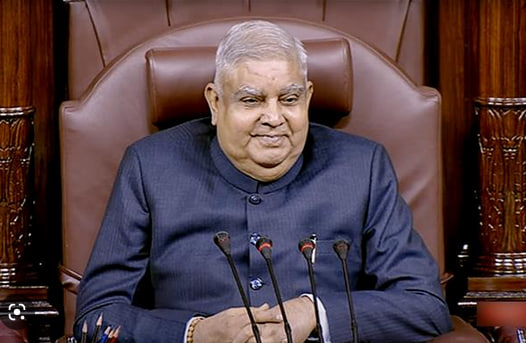Bound supremacy : On Vice-President Jagdeep Dhankhar’s remarks and the basic structure doctrine
Parliamentary sovereignty isn’t undone by the basic structure doctrine
It is fairly well-known that parliamentary legislation is subject to two limitations under the Constitution of India. One is by judicial review, or the power of constitutional courts to review legislation for possible violation of any fundamental right. Another is that no amendment to the Constitution should have the effect of destroying any of its basic features. While the first limitation is set out in Article 13, under which laws inconsistent with or in derogation of fundamental rights are void , the second limitation is based on the ‘basic structure’ doctrine evolved by the Supreme Court. Vice-President Jagdeep Dhankhar’s remarks questioning the basic structure doctrine propounded in the landmark Kesavananda Bharati case (1973) does not reflect the correct position of law. In his view, the basic structure doctrine has usurped parliamentary sovereignty and goes against the democratic imperative that the elected legislature should reign supreme . His particular concern seems justified: that the Supreme Court prevented the National Judicial Appointments Commission, a body to appoint judges to the superior courts in the country, from coming into existence by striking down the relevant amendment to the Constitution and a parliamentary law to give effect to it. But it is difficult not to see his attack on the basic structure doctrine as part of the current dispensation’s tirade against the judiciary and its grievance that it does not have enough say in the appointment of judges.
The idea that the basic structure doctrine undermines parliamentary sovereignty is simply wrong. Parliament is sovereign in its domain , but it is still bound by the limitations imposed by the Constitution. Mr. Dhankhar seems to have a problem with any sort-of limitation on Parliament’s jurisdiction to amend the Constitution. Surely, he could not have forgotten that the basic structure doctrine had helped save the Constitution from being undermined through the misuse of parliamentary majority. The main purpose of the doctrine is to ensure that some fundamental features of the Constitution are not legislated out of existence . It has been invoked to strike down amendments only in a few cases, but many others have survived basic structure challenges. Parliamentary majority is transient, but essential features of the Constitution such as the-rule-of-law , parliamentary form of government, separation of powers, the idea of equality, and free and fair elections ought-to be perennially protected from legislative excess. It may be open to a new Constituent Assembly to come up with another constitution that changes these fundamental concepts, but a legislature formed under the current Constitution cannot be allowed to change its core identity.
